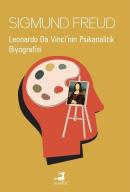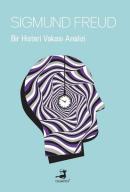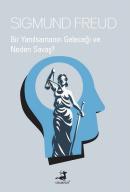
The Interpretation of Dreams (German: Die Traumdeutung) is a book by psychoanalyst Sigmund Freud. The book introduces Freud's theory of the unconscious with respect to dream interpretation, and also first discusses what would later become the theory of the Oedipus complex. Freud revised the book at least eight times and, in the third edition, added an extensive section which treated dream symbolism very literally, following the influence of Wilhelm Stekel. Freud said of this work, "Insight such as this falls to one's lot but once in a lifetime." Dreams Have A Meanıng In what we may term "prescientific days" people were in no uncertainty about the interpretation of dreams. When they were recalled after awakening they were regarded as either the friendly or hostile manifestation of some higher powers, demoniacal and Divine.
With the rise of scientific thought the whole of this expressive mythology was transferred to psychology; to-day there is but a small minority among educated persons who doubt that the dream is the dreamer's own psychical act. But since the downfall of the mythological hypothesis an interpretation of the dream has been wanting. The conditions of its origin; its relationship to our psychical life when we are awake; its independence of disturbances which, during the state of sleep, seem to compel notice; its many peculiarities repugnant to our waking thought; the incongruence between its images and the feelings they engender; then the dream's evanescence, the way in which, on awakening, our thoughts thrust it aside as something bizarre, and our reminiscences mutilating or rejecting it—all these and many other problems have for many hundred years demanded answers which up till now could never have been satisfactory. Before all there is the question as to the meaning of the dream, a question which is in itself double-sided. There is, firstly, the psychical significance of the dream, its position with regard to the psychical processes, as to a possible biological function; secondly, has the dream a meaning—can sense be made of each single dream as of other mental syntheses?
- Açıklama
The Interpretation of Dreams (German: Die Traumdeutung) is a book by psychoanalyst Sigmund Freud. The book introduces Freud's theory of the unconscious with respect to dream interpretation, and also first discusses what would later become the theory of the Oedipus complex. Freud revised the book at least eight times and, in the third edition, added an extensive section which treated dream symbolism very literally, following the influence of Wilhelm Stekel. Freud said of this work, "Insight such as this falls to one's lot but once in a lifetime." Dreams Have A Meanıng In what we may term "prescientific days" people were in no uncertainty about the interpretation of dreams. When they were recalled after awakening they were regarded as either the friendly or hostile manifestation of some higher powers, demoniacal and Divine.
With the rise of scientific thought the whole of this expressive mythology was transferred to psychology; to-day there is but a small minority among educated persons who doubt that the dream is the dreamer's own psychical act. But since the downfall of the mythological hypothesis an interpretation of the dream has been wanting. The conditions of its origin; its relationship to our psychical life when we are awake; its independence of disturbances which, during the state of sleep, seem to compel notice; its many peculiarities repugnant to our waking thought; the incongruence between its images and the feelings they engender; then the dream's evanescence, the way in which, on awakening, our thoughts thrust it aside as something bizarre, and our reminiscences mutilating or rejecting it—all these and many other problems have for many hundred years demanded answers which up till now could never have been satisfactory. Before all there is the question as to the meaning of the dream, a question which is in itself double-sided. There is, firstly, the psychical significance of the dream, its position with regard to the psychical processes, as to a possible biological function; secondly, has the dream a meaning—can sense be made of each single dream as of other mental syntheses?
Stok Kodu:9786053242031Boyut:13.50x19.00Sayfa Sayısı:247Basım Yeri:İstanbulBasım Tarihi:2014-12Kapak Türü:CiltsizKağıt Türü:2. HamurDili:İngilizce
- Yorumlar
- Yorum yazBu kitabı henüz kimse eleştirmemiş.
- Yazarın Diğer Kitapları
- Yayınevinin diğer kitapları
























